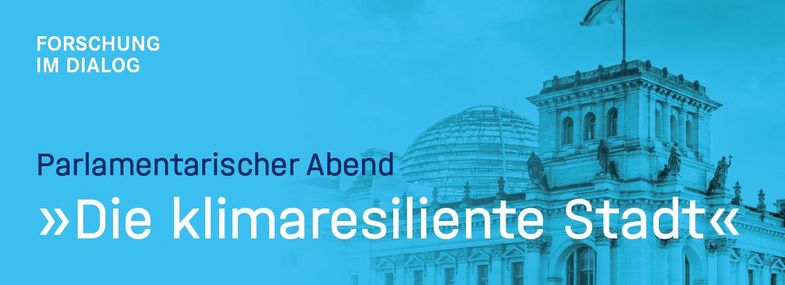How climate-resilient urban redevelopment can succeed: Parliamentary Evening in the German Bundestag
On 8 November 2022, members of the German Bundestag, representatives from business, administration and science accepted an invitation from the Helmholtz Climate Initiative to the government quarter in Berlin. Researchers from the Chair of Water Management and Climate Adaptation at the University of Leipzig took the opportunity to discuss the findings of 3 years of intensive research work in the 'Leipzig BlueGreen' project with decision-makers.
Blue-green systems help to make cities fit for the unavoidable consequences of climate change (e.g. heavy rainfall and extended periods of drought). Urban spaces in particular present special challenges and opportunities in this regard: for example, the area available for adaptation measures in cities is very limited, but due to the high population density, multifunctional concepts such as that of the sponge city are also particularly effective.
The researchers at the University of Leipzig are looking to the future with hope, and not just since the meeting for the parliamentary evening in Berlin: the findings gained in the Leipzig BlueGreen model project need to be consolidated and translated into municipal packages of measures. Urban planning, water-sensitive development plans are a suitable instrument for this. At the same time, the legal framework at the federal policy level must be set in such a way that hurdles for motivated actors are reduced. Actors from the scientific community are available to advise municipal practitioners. On the part of the Chair of Water Management and Climate Change, represented by Dr. Stefan Geyler, Dr. Sabine Lautenschläger, Tom Ziegenbein, Lydie Laforet and Erik Hofmann are particularly involved in the Leipzig Blue-Green model project and emphasise the importance of resource efficiency.
Together with the strong voice of the joint project leader Prof. Dr. Roland Müller (UFZ) and the head of the city planning office, Dr. Brigitta Ziegenbein, the representatives of the university were able to emphasise the importance of Leipzig as a blue-green model city. Model cities must continue to be promoted in the future so that proactive urban redevelopment succeeds in a climate-sensitive manner.

